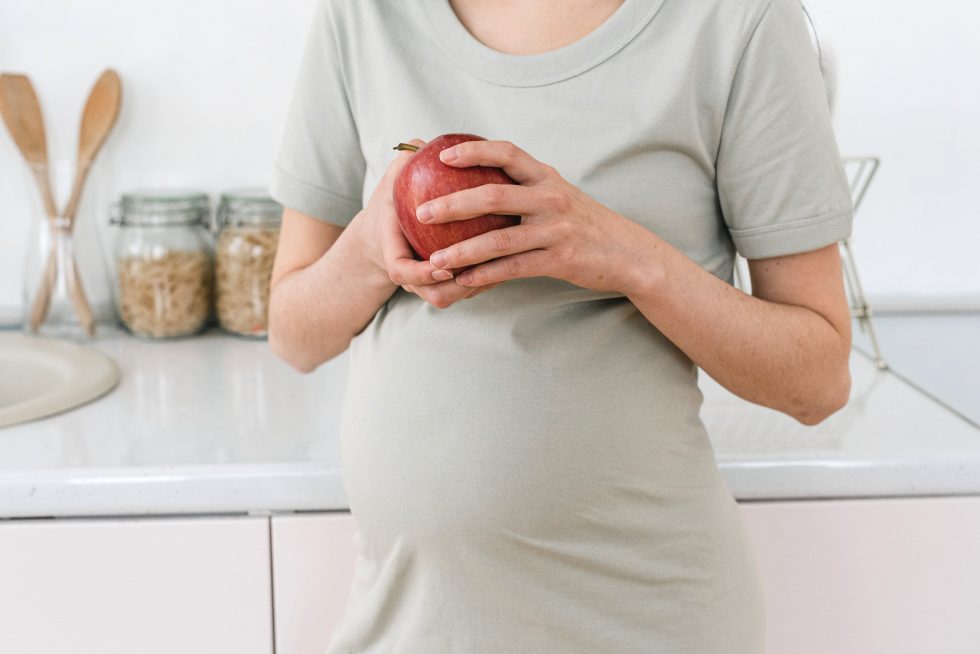The journey to parenthood is an exciting and transformative time in a person’s life. While there are many factors that contribute to fertility and a healthy pregnancy, nutrition plays a crucial role. Eating a well-balanced diet can optimize fertility and support a healthy pregnancy. In this blog, we will explore what to eat when trying to conceive and what good nutrition looks like during pregnancy.

What to Eat When Trying to Conceive:
When trying to conceive, it’s important to focus on a nutrient-rich diet that supports reproductive health. Here are some key nutrients to include in your diet:
1. Folate: Adequate folate intake is essential for preventing neural tube defects in the early stages of pregnancy. Include foods like leafy greens, citrus fruits, legumes, and fortified grains in your diet.
2. Omega-3 Fatty Acids: These healthy fats are crucial for reproductive health and hormone balance. Incorporate fatty fish (such as salmon and sardines), chia seeds, flaxseeds, and walnuts into your meals.
3. Antioxidants: Antioxidants help protect the reproductive cells from damage caused by free radicals. Include colorful fruits and vegetables like berries, spinach, kale, and bell peppers in your diet.
4. Iron: Iron is important for maintaining healthy blood levels and preventing anemia. Include iron-rich foods like lean meats, poultry, fish, legumes, and fortified cereals in your meals.
5. Zinc: Zinc is essential for fertility and hormone regulation. Good sources of zinc include oysters, lean meats, poultry, legumes, nuts, and seeds.
Good Nutrition During Pregnancy:
During pregnancy, your nutritional needs increase to support the growth and development of your baby. Here’s what good nutrition looks like during this crucial time:
1. Macronutrients: Ensure you’re getting a balance of carbohydrates, proteins, and healthy fats. Opt for whole grains, lean proteins (such as poultry, fish, and tofu), and healthy fats from sources like avocados, nuts, and olive oil.
2. Calcium: Calcium is vital for the development of your baby’s bones and teeth. Include dairy products, fortified plant-based milk, leafy greens, and calcium-fortified foods in your diet.
3. Vitamin D: Vitamin D aids in calcium absorption and supports the development of your baby’s bones. Spend time outdoors to get natural sunlight or consider a vitamin D supplement if needed.
4. Fiber: Constipation is a common issue during pregnancy. Increase your fiber intake by consuming whole grains, fruits, vegetables, and legumes. This will also help regulate blood sugar levels.
5. Hydration: Staying hydrated is crucial during pregnancy. Aim for at least 8-10 glasses of water per day and include hydrating foods like fruits and vegetables in your meals.
Eating a well-balanced diet is essential when trying to conceive and during pregnancy. Prioritize nutrient-dense foods that support reproductive health and provide the necessary vitamins and minerals for your baby’s growth. Remember to consult with your healthcare provider https://mfcfamily.com/ for personalized advice and guidance throughout your journey to parenthood. By nourishing your body with the right foods, you’re taking an important step towards a healthy pregnancy and a bright future for you and your baby.
